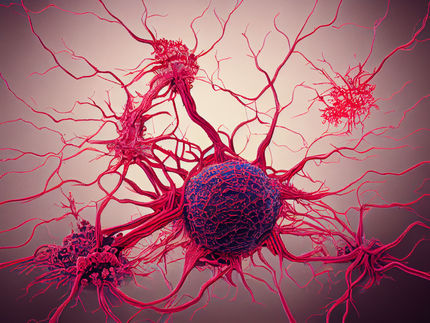Dana-Farber Cancer Institute to investigate Chemokine Therapeutics' CTCE-9908 in a preclinical study of human brain cancer
Advertisement
Chemokine Therapeutics Corp. announced that it has executed a Material Transfer Agreement with the Dana-Farber Cancer Institute of Boston, Massachusetts. Chemokine Therapeutics will supply Dana-Farber with its lead anti-cancer compound, CTCE-9908, a chemokine CXCR4 antagonist. Oncologists at Dana-Farber will study the benefits of CTCE-9908 in a series of preclinical studies, investigating the drug's ability to inhibit the growth of a human brain cancer (glioblastoma) cells.
CTCE-9908 is an analog of stromal cell derived factors 1 (SDF-1) which blocks the biological activities of this chemokine. SDF-1 is involved in cancer angiogenesis and metastasis. In previous experimental studies, CTCE-9908 has been shown to reduce cancer metastases by a considerable 50-70%. Further, research from Chemokine has demonstrated CTCE-9908 to be a potent anti-angiogenic molecule with potential in managing cancer growth and metastasis. The SDF-1 receptor is referred to as CXCR4. The CXCR4 receptor is present on most human tumors cells, including lung, breast, prostate, colon, ovarian, bone, brain, and skin cancer, and has been observed to contribute to invasion of cancer to distant sites from the primary tumor, a process known as metastasis. Leading cancer researchers have demonstrated that a high level of CXCR4 expression in cancer cells is correlated to tumor progression, high metastasis rate and low patient survival rate.
Other news from the department research and development

Get the life science industry in your inbox
By submitting this form you agree that LUMITOS AG will send you the newsletter(s) selected above by email. Your data will not be passed on to third parties. Your data will be stored and processed in accordance with our data protection regulations. LUMITOS may contact you by email for the purpose of advertising or market and opinion surveys. You can revoke your consent at any time without giving reasons to LUMITOS AG, Ernst-Augustin-Str. 2, 12489 Berlin, Germany or by e-mail at revoke@lumitos.com with effect for the future. In addition, each email contains a link to unsubscribe from the corresponding newsletter.





















































